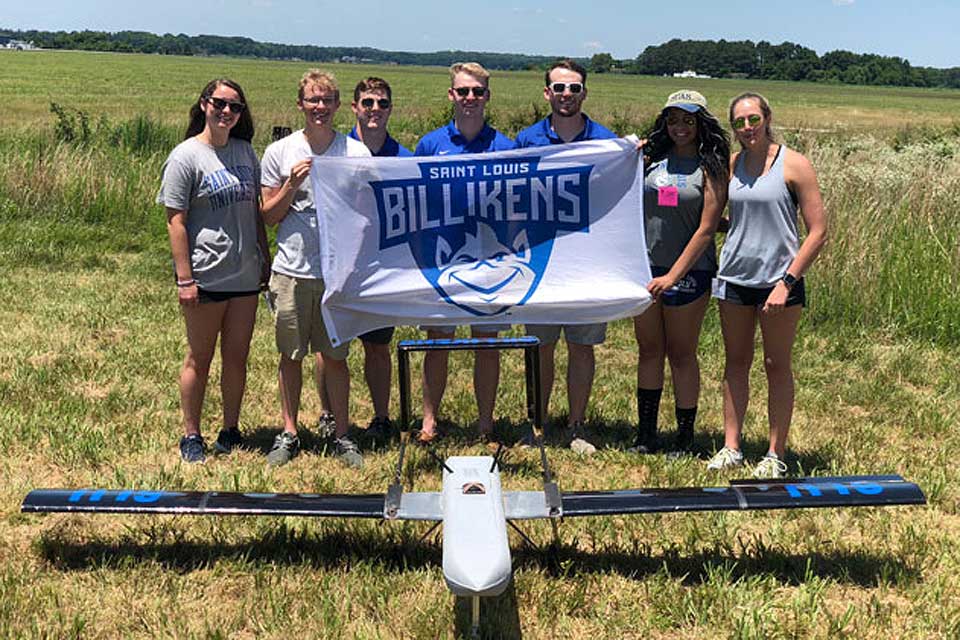Parks College Team Competes in Unmanned Aerial System Competition
A team from Saint Louis University's Parks College of Engineering, Aviation and Technology recently participated in the annual Student Unmanned Aerial System (SUAS) Competition, hosted by the Seafarer Chapter of the Association for Unmanned Vehicle Systems International (AUVSI).
This competition serves to stimulate and foster student interest in UAS and is designed to provide an opportunity for students to gain valuable complementary, multi-disciplinary and systems engineering knowledge.
For the past four years, student teams have worked with Srikanth Gururajan, Ph.D. in his AirCRAFT Laboratory and competed in the SUAS competition, held at the Naval Air Station, Patuxent River, Maryland.
SLU’s teams are multi-disciplinary, with students (undergraduate and graduate) majoring in including aerospace, mechanical, electrical, computer engineering, computer science and business coming together to form sub-teams:
- UAS platform
- Mission planning & flight control
- Systems integration and
- Target imaging, detection and identification
In order to address this, the student teams design, develop and fabricate an UAS capable of completing specific autonomous operations. These operations include takeoff, navigation, sense, detect and avoid (SDA), among others. Students analyze and validate operation performance through flight test demonstration, subject to constraints on time and other mission parameters.
At the summer competition, the team attempted the tasks of autonomous takeoff, waypoint navigation, search area, aerial imaging as well as target detection and identification. They placed 14th out of 69 teams, including 31 international teams. The team utilized custom designed fixed wing UAV integrated with the Pixhawk autopilot to perform autonomous flight tasks.
The team intends to build on the experience gained from participating in this year’s competition to improve all aspects of autonomous flight, for the 2018-19 cycle. The team also intends to address additional tasks of sense, detect, and avoid, interoperability, automatic target recognition and classification.


















